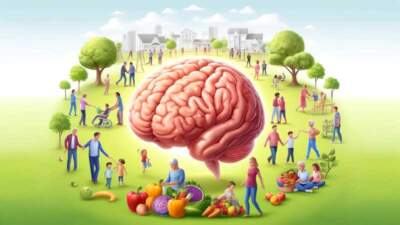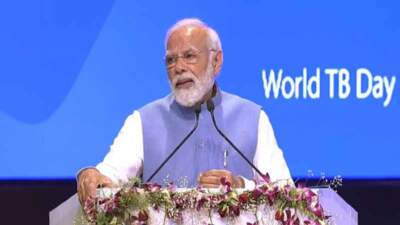Researchers have found a strong connection between the foods we eat and the health of our brain. This study, published in the prestigious journal Nature, was conducted by scientists from the University of Warwick. They discovered that eating a variety of healthy foods not only keeps our bodies fit but also plays a crucial role in maintaining our brain function and mental well-being.
Public health
Simple Exercise Can Help Reduce Depression
Recent studies have shown that doing simple exercises like gardening, walking, or playing golf can help lower depression rates. This was discovered by researchers at Anglia Ruskin University, who reviewed many studies from around the world.
Their findings, published in the Neuroscience and Biobehavioural Reviews journal, show that regular physical activity can decrease the chances of depression by 23% and anxiety by 26%.
Active Seniors, Enhanced Living: Uncovering the Link
A recently conducted Cambridge study establishes a significant correlation between increased physical activity, decreased sedentary behavior, and an improved quality of life in adults over the age of sixty. The study scrutinized the daily habits of nearly 1,500 adults, revealing that reductions in physical activity or increases in inactive pastimes such as television viewing or reading adversely affect the quality of life.
U.S. Reports Local Malaria Spread For The First Time In Two Decades
In a development not seen in 20 years, local transmission of malaria has been reported in the U.S., with five cases surfacing in the past two months. Four cases were identified in Florida, with one more appearing in Texas.
The Immunisation Imprint: Charting the Course of Vaccinations Across the Globe
As humankind forges ahead into an era shaped by modern medicine, the notion of vaccinations is frequently at the heart of global discourse. This essential immunological tool serves as a bulwark against an array of diseases, curbing their progression, and occasionally obliterating them from the face of the earth.
Journey through Diabetes: Unraveling Pathophysiology, Exploring Treatments, and Embracing Prevention
Diabetes mellitus, a name that reverberates through the halls of clinics and hospitals worldwide, has become a common household term, having entrenched itself deeply into our daily dialogues. With global prevalence burgeoning, it remains one of the leading public health concerns. In the vast realm of medicine, few areas have evolved as radically as our understanding of diabetes mellitus.
Unveiling Long COVID: The Unseen Global Health Crisis
The COVID-19 pandemic has left an indelible mark on global health, with its impact extending far beyond the acute phase of the disease. A recent Swiss study published in the British Medical Journal (BMJ) has shed light on the long-term effects of COVID-19 in unvaccinated individuals, revealing a worrying trend.
The Rising Threat of Human Metapneumovirus: What You Need to Know
In the realm of public health, awareness is a powerful tool. As we navigate through the complexities of the global health landscape, a new threat has emerged, catching many by surprise. This threat is the Human Metapneumovirus (HMPV), a relatively unknown virus that has seen a significant rise in cases recently.
Lithium in Drinking Water: Uncovering Links to Autism Risk and Environmental Factors
A study published on April 3 in JAMA Pediatrics is thought to be the first to recognize naturally occurring lithium in drinking water as a potential environmental risk factor for autism. “Any contaminants in drinking water that could impact the developing human brain warrant serious investigation,” stated the lead author of the study, Beate Ritz, MD, PhD, a professor of neurology at the David Geffen School of Medicine at UCLA and a professor of epidemiology and environmental health at the UCLA Fielding School of Public Health.
India Accelerates TB Eradication: Uniting the World through Innovative Healthcare Initiatives and Global Unity
On Friday, Indian Prime Minister Narendra Modi announced that India aims to eliminate Tuberculosis by 2025, five years ahead of the global target set for 2030. He made this statement during his address at the One World TB Summit, held at the Rudrakash Convention Centre in Varanasi. In addition, he launched several initiatives, such as the TB-Mukt Panchayat, a nationwide launch of a shorter TB Preventive Treatment (TPT), a family-focused care model for TB, and unveiled India’s Annual TB Report for 2023.










